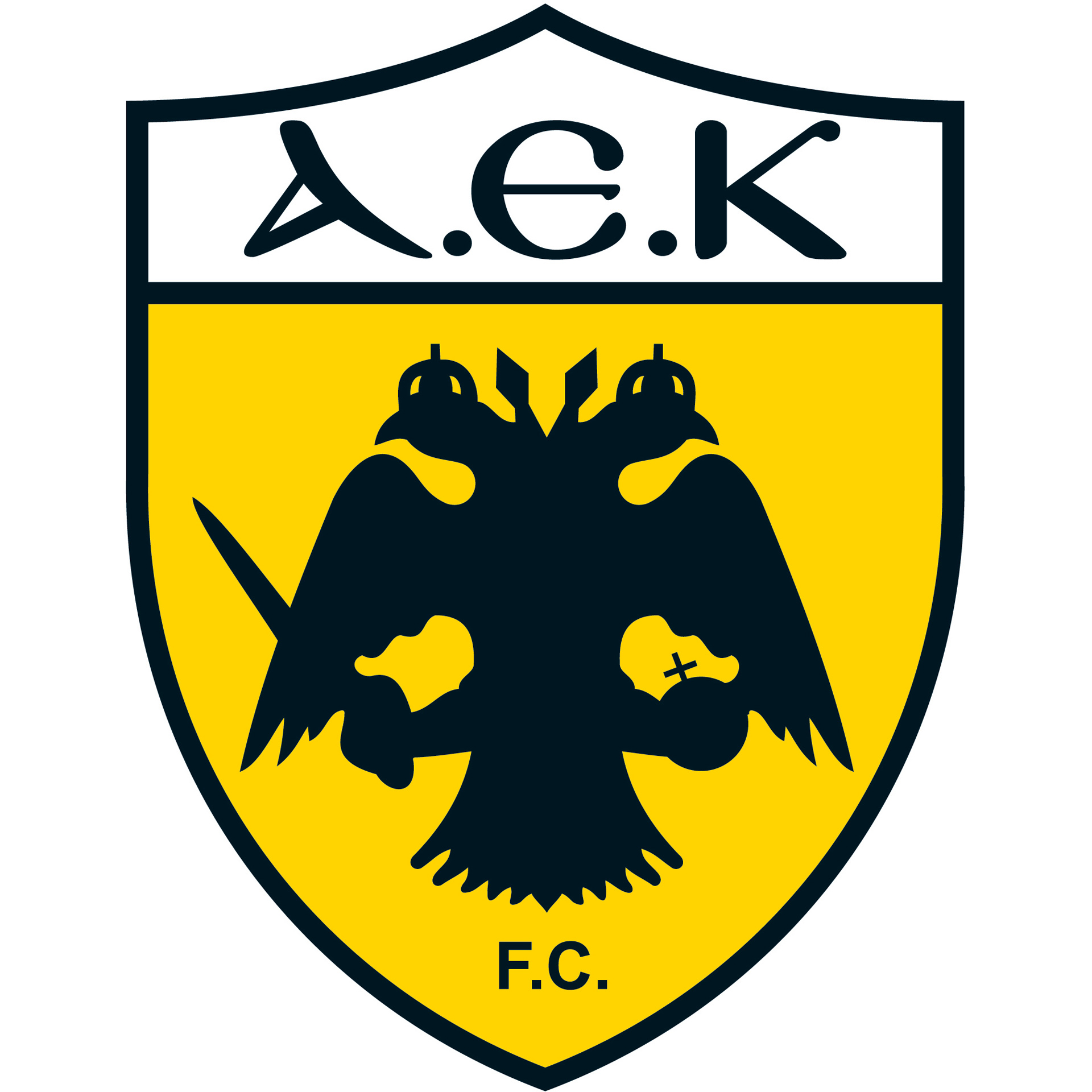International Human Rights Day 2021 and Purple Friday
Human Rights Day is observed every year on 10 December — the day the United Nations General Assembly adopted, in 1948, the Universal Declaration of Human Rights (UDHR). The UDHR is a milestone document, which proclaims the inalienable rights that everyone is entitled to as a human being – regardless of race, colour, religion, sex, language, political or other opinion, national or social origin, property, birth or other status. Available in more than 500 languages, it is the most translated document in the world.
This year’s Human Rights Day theme relates to ‘Equality’ and Article 1 of the UDHR – “All human beings are born free and equal in dignity and rights.” Equality, inclusion and non-discrimination, in other words – a human rights-based approach to development – is the best way to reduce inequalities and resume our path towards realising the 2030 Agenda.
Purple Friday
In the Netherlands, Friday 10 December is also Purple Friday, a day when children and teenagers in the Netherlands show that everyone can be themselves at school and no one should be excluded or bullied because of who they are or who they fall in love with. This is a very basic human right and a great approach to raise awareness and combat discrimination among young people.
With a team of athletes, trainers, referees, journalists and presenters from the sports world, there are online guest lectures on this day to as many primary schools as possible, with the central theme ‘the importance of being yourself and daring to do what you really would like to do’. If you’re from the Netherlands or speak Dutch and want to know more about it, you can find the website here and can register for the free lessons taking place today here. This year, the campaign is also reaching out to athletes. The #AllTogetherChallenge challenges athletes to join forces. It seems normal that everyone can be themselves on the sports field, but it is far from that! Athletes can take action and wear the cool rainbow ribbon all year round. Many professional and amateur athletes at home and abroad have already done so. Interested players can order their rainbow bands, rainbow corn flags and other rainbow attributes now here. Find more information about this year’s #alltogether challenge here.
Maybe this can also inspire non-Dutch clubs to approach LGBTQ topics early on.
Find out how we strive to put human rights at the centre of our work:
EFDN Projects for Human Rights
COMMUNITY CHAMPIONS LEAGUE
The project is a social street football competition organised locally in ten cities from eight European countries, where the participating teams can win more points through Fair-Play, Fair Support and Volunteering in community activities than by winning their Street Football matches. Children from different backgrounds get to know and respect each other because different schools compete against each other. Furthermore, the international tournament gives them the opportunity to meet other European children and play football with them.
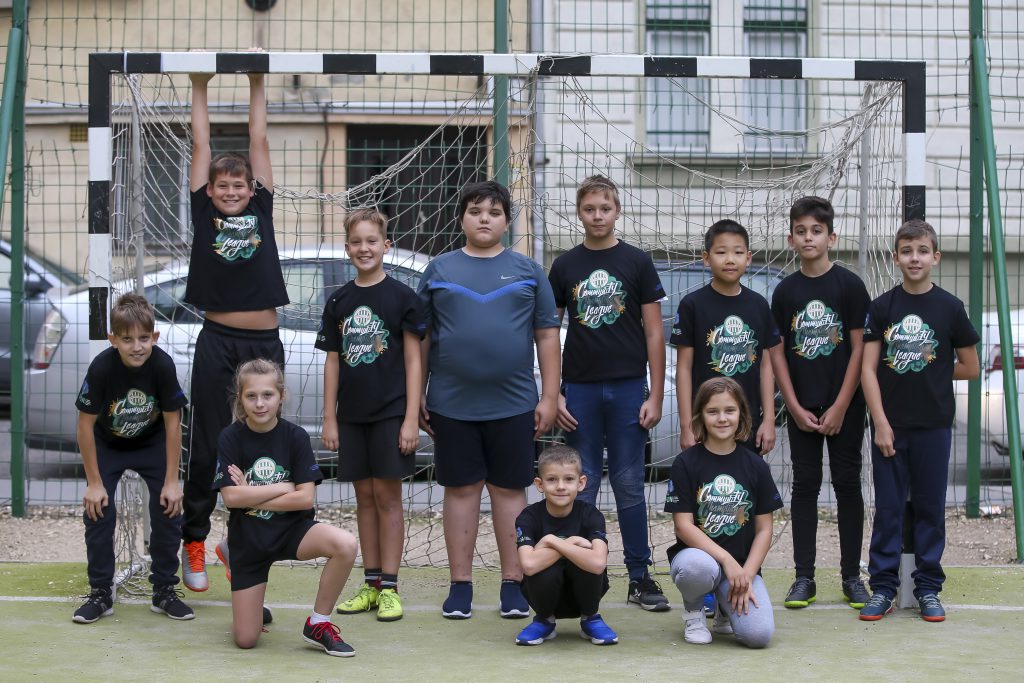

SCORING FOR HEALTH
Scoring for Health aims to tackle the problem of childhood obesity which, as identified by the World Health Organization, is still a critical issue throughout Europe today. The programme supports the 3rd UN Sustainable Development Goal of Good Health and Well Being and is funded by Erasmus+. Health and good nutrition are basic human rights that are being supported by this programme. Children, schools and parents work together with the clubs to ensure it has a sustainable and positive effect. That way, kids from different backgrounds have the chance to learn about a healthy lifestyle at a stage where change or adapting is easier and can also have a positive effect on people around them.


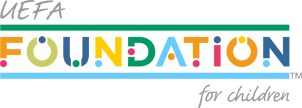
SIDFOOT
EFDN is one of in total 8 programme partners that are delivering the Pan-European programme SIDFOOT (“Community Football Drivers for social inclusion in deprived districts”) which is a collaborative partnership funded by the Erasmus+ programme. Our member Real Betis Balompié Foundation is the coordinator of the project that found its inspiration in the figure of Jorge Morillo, who has dedicated his entire life to help the most disadvantaged people of Seville, especially those who are living in deprived areas of the city.
The general objective of this project is to make use of the huge potential of football as a tool to promote social inclusion and a healthier life for children and young people living in disadvantaged neighborhoods. SIDFOOT focuses on having a positive influence on the lives of children and young people living in deprived areas and involves activities that will steer young people towards education in values and the creation of healthy environments.


SHOW RACISM THE RED CARD
In collaboration with network members and project partner Geef Racisme de Rode Kaart, EFDN delivers the Show Racism the Red Card programme. Show Racism the Red Card (SRtRC) is a 24-month anti-racism and anti-discrimination programme. SRtRC utilises the high-profile status of football and football players to help tackle racism in society. The project aims to raise awareness of diversity, foster social cohesion, and reduce physical and verbal violence linked to racism. The programme supports Human Rights since racism and other forms of discrimination question people’s humanity and rights on a daily basis. It is an issue that has been talked about a lot this year- not because it was not an issue before but because more and more people make their voices heard and demand change. This project attempts to support long-term change that transcends the field of sport.
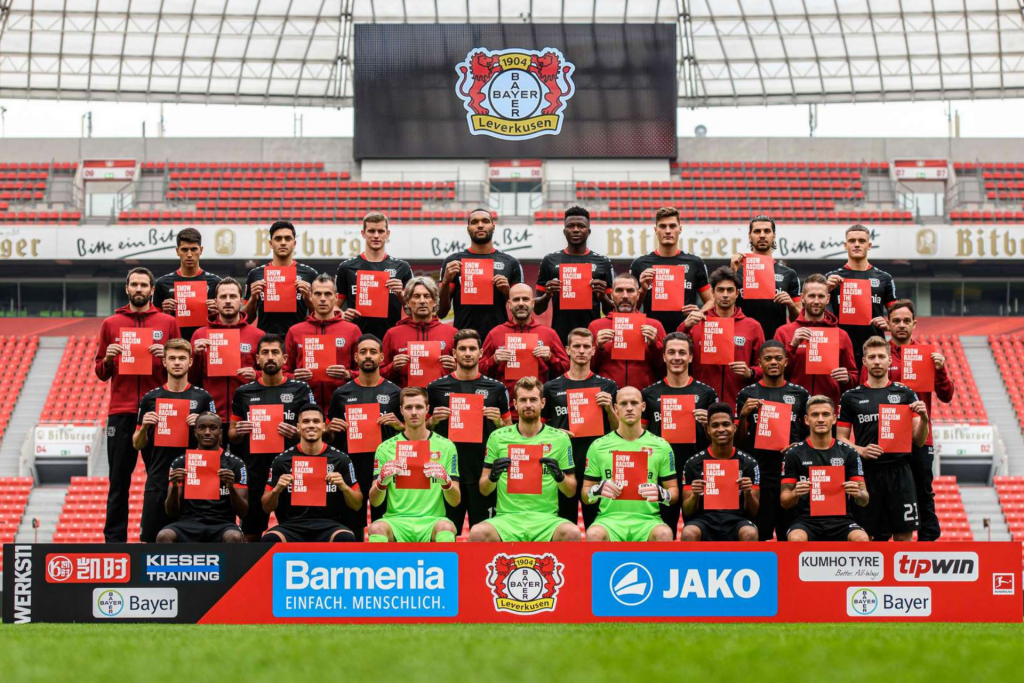
STEP4YOUTH
The objective of STEP4youth is to design, test and evaluate a new sport-based intervention that introduces and improves employability, knowledge, skills and networks in order to foster the social inclusion of refugee and migrant youth (including unaccompanied minors and youth at highest risk) in Europe.
This new Programme will focus on soft skills valued by employers, such as commitment, motivation, teamwork, flexibility, leadership, time-management or creativity and problem-solving to name a few. Working and strengthening these skills will allow a group of 180 refugees and migrant youth from Spain, Greece and Italy to be better equipped when entering the labour market. Having a job is crucial for their independence and self-reliance and facilitates their social inclusion and integration in Europe. The programme, inspired by the best European practices linking sport and social inclusion, will be delivered by a pool of 90 educators and coaches trained in the new methodology. Furthermore, the project will connect refugees and migrants with a group of 15 companies through the so-called BRIDGE events, an ideal platform for employers to seek new talents duly trained by the Programmes’ methodology. Another key output of the project is the design of a systematization process to evaluate and asses the intervention, and extract from there conclusions, lessons learned and recommendations for the EU sporting community.


TACBIS
Colour blindness is one of the world’s most common inherited conditions, affecting an estimated 300+ million people worldwide. To address and raise awareness on this issue, EFDN developed the “Tackling Colour Blindness In Sport (TACBIS)” programme. Together with our programme partners we will investigate the prevalence of colour blindness in football (fans and players), identify barriers to progression for colour blind players and coping mechanisms employed by colour blind players. Together with our project partners we aim to raise awareness for colour blindness in sport and society and promote surroundings that are colour blind friendly. It is a human right to be protected from discrimination and take part in the social life which includes sport. EFDN will start an awareness campaign amongst clubs to prevent kit clashes for colour blind people and share the gathered knowledge and practical solutions in a new EFDN Practitioners Guide. We encourage all our member clubs to take first steps like, for example, to make changes on the website to improve the accessibility for colour blind people.
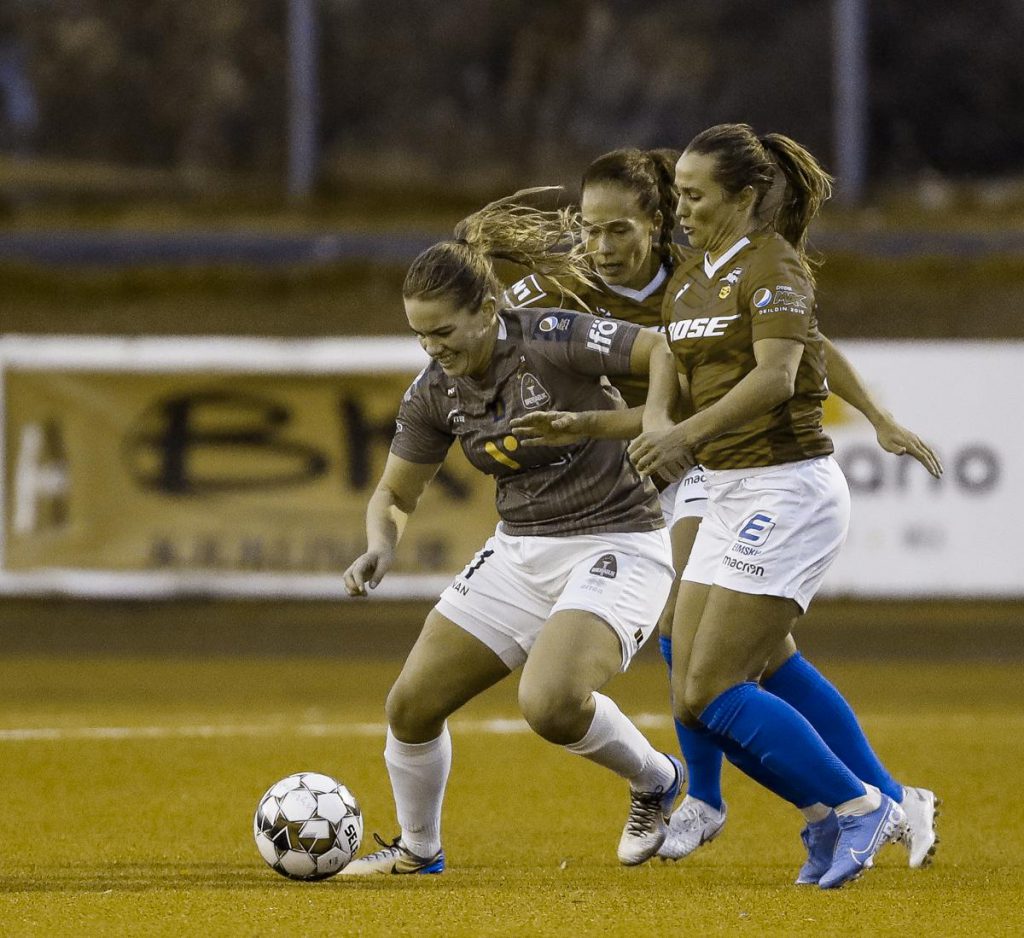

WELCOME THROUGH FOOTBALL
The Welcome Through Football programme funded by UEFA Foundation for Children started on the 1st of January and will run through until June 2022. The Welcome through Football methodology fosters the social inclusion and employability of young newly arrived immigrants and refugees. Therefore, our activities are promoting the quality of youth work, the intercultural dialogue and strengthen knowledge and acceptance of diversity in society.
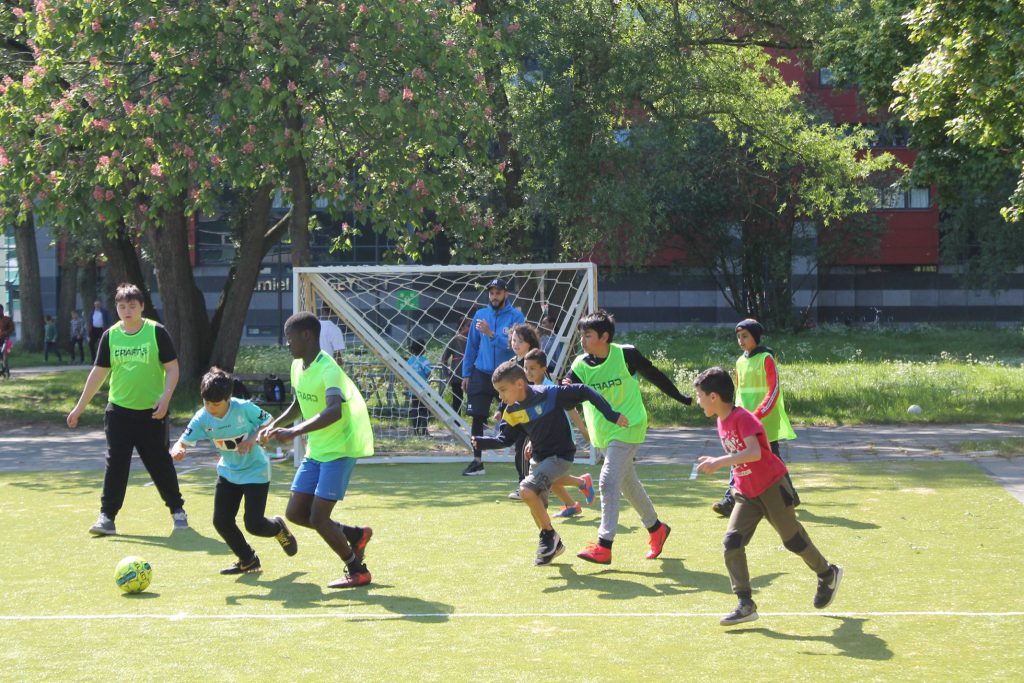


Human Rights Day on Social Media

Aris Limassol FC Social, Environmental, and Health Initiatives


